Ideology is the combination of two Greek words: “ideo” and “logos” which mean “ideas” and “science” respectively. Thus ideology means “science of ideas”. It is a set of beliefs ideas and values which directs one’s goals.
The end of ideology was predicted to occur between the late 1950s and the early 1960s. “The End of Ideology” by Daniel Bell was widely regarded as signaling the end of ideology (1960).
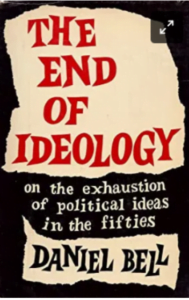
Later Bell claimed that his formulation of the “end of ideology” was primarily a reference to the gradual disintegration of socialism and Marxism in the 1950s in order to avoid being misunderstood. Like the majority of authors who have written about the topic Bell tended to view ideology through the lens of the interwar period when radical ideologies were on the rise. Bell and others believed that an era of acrimonious ideological conflict had come to an end with the dramatic collapse of these radical political ideologies.
He wrote ‘for the radical intellectual who had articulated the revolutionary impulses of the past century and a half all this has meant an end to chiliastic hopes to millenarianism to apocalyptic thinking – and to ideology.’
Bell saw ideology as a radical political religion focused on achieving some sort of utopia much like many other commentators caught up in the Cold War zeitgeist. Marxism and communism were the archetypal examples of an ideology in Bell’s eyes.
He believed that these ideologies had become ‘exhausted’ and that ‘for the radical intelligentsia the old ideologies have lost their “truth” and their power to persuade.’
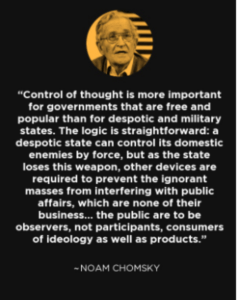
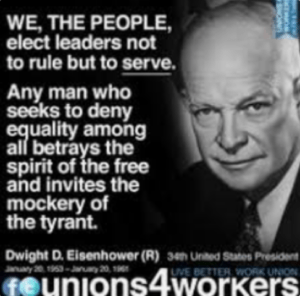
Bell’s thesis offered some insightful observations. The revolutionary radical utopian and totalitarian ideologies of communism and fascism lost their ability to inspire the populace due to their weariness. Despite numerous attempts to give the class conflict an ideological framework class politics never attained its former prominence. Furthermore since the 1960s a more pragmatic and realistic political approach has replaced the utopian hope and vision associated with radical politics.
Ideology is a dirty word in New Labour circles Richard Reeves wrote in a September 2004 article for the New Statesman adding that “without ideology the role of politicians is no longer to persuade merely to sell.” This transactional opportunistic and pragmatist political approach has purposefully distanced itself from ideals and seemed to support Bell’s analysis of the decline of ideology.
Ideology’s negative connotation did not just arise from its connection to the failed political endeavors of the interwar period. In western societies a depoliticized transient technocratic regime of government came to dominate public life. This type of governance placed an emphasis on procedures and regulations while pushing ideals to the periphery. Political goals and objectives have become more pragmatist and presentist with each passing decade since the late 1970s. Politics’ guiding ideals and principles became more elusive as it lost its future-focused focus. Politics frequently appear as a test of managerial technical or administrative skills.
Political leaders bluster about how their ideas are “costed ” “evidence-based ” and represent “best practice.” Their depoliticized language uses terms from management theory to support their policies. Instead of governing they “deliver.” Politicians in these circumstances have a decidedly presentist temperament and do not strive to create a society that is qualitatively different from the one that already exists. The French historian François Furet recognized this situation in the aftermath of the Cold War after the fall of the iron curtain. We are “condemned to live in the world as it is ” he wrote in The Passing of an Illusion (1995).
Ideology and ideological schools of thought have endured the backlash against their radical utopian form despite their negative reputation. An ideology does not necessarily state that it seeks to fundamentally alter society. Additionally it is not necessary to present an idealistic worldview. Ideology also serves a purpose outside of politics. Most fundamentally what ties people together is a consistent and largely stable system of beliefs and values. The goals and methods of action particularly organized political action are explained and justified in part by these beliefs.
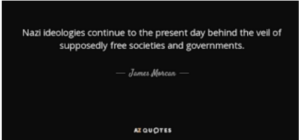
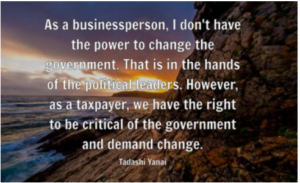
Ideology and the giving of legitimacy are entwined. In the modern world maintaining social order depends on a consistent ideology that legitimizes the society’s institutions and its ruler/government.
An ideology works to explain integrate motivate and legitimize through the provision of values that are seen as authoritative.
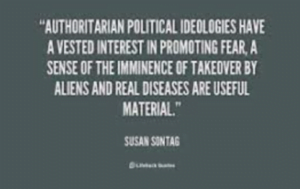
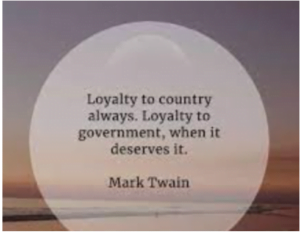
The 21st century has not brought an end to ideology; rather it has depoliticized it.
Ideology is the combination of two Greek words: “ideo” and “logos” which mean “ideas” and “science” respectively. Thus ideology means “science of ideas”. It is a set of beliefs ideas and values which directs one’s goals.
The end of ideology was predicted to occur between the late 1950s and the early 1960s. “The End of Ideology” by Daniel Bell was widely regarded as signaling the end of ideology (1960).
Later Bell claimed that his formulation of the “end of ideology” was primarily a reference to the gradual disintegration of socialism and Marxism in the 1950s in order to avoid being misunderstood. Like the majority of authors who have written about the topic Bell tended to view ideology through the lens of the interwar period when radical ideologies were on the rise. Bell and others believed that an era of acrimonious ideological conflict had come to an end with the dramatic collapse of these radical political ideologies.
He wrote ‘for the radical intellectual who had articulated the revolutionary impulses of the past century and a half all this has meant an end to chiliastic hopes to millenarianism to apocalyptic thinking – and to ideology.’
Bell saw ideology as a radical political religion focused on achieving some sort of utopia much like many other commentators caught up in the Cold War zeitgeist. Marxism and communism were the archetypal examples of an ideology in Bell’s eyes.
He believed that these ideologies had become ‘exhausted’ and that ‘for the radical intelligentsia the old ideologies have lost their “truth” and their power to persuade.’
Bell’s thesis offered some insightful observations. The revolutionary radical utopian and totalitarian ideologies of communism and fascism lost their ability to inspire the populace due to their weariness. Despite numerous attempts to give the class conflict an ideological framework class politics never attained its former prominence. Furthermore since the 1960s a more pragmatic and realistic political approach has replaced the utopian hope and vision associated with radical politics.
Ideology is a dirty word in New Labour circles Richard Reeves wrote in a September 2004 article for the New Statesman adding that “without ideology the role of politicians is no longer to persuade merely to sell.” This transactional opportunistic and pragmatist political approach has purposefully distanced itself from ideals and seemed to support Bell’s analysis of the decline of ideology.
Ideology’s negative connotation did not just arise from its connection to the failed political endeavors of the interwar period. In western societies a depoliticized transient technocratic regime of government came to dominate public life. This type of governance placed an emphasis on procedures and regulations while pushing ideals to the periphery. Political goals and objectives have become more pragmatist and presentist with each passing decade since the late 1970s. Politics’ guiding ideals and principles became more elusive as it lost its future-focused focus. Politics frequently appear as a test of managerial technical or administrative skills.
Political leaders bluster about how their ideas are “costed ” “evidence-based ” and represent “best practice.” Their depoliticized language uses terms from management theory to support their policies. Instead of governing they “deliver.” Politicians in these circumstances have a decidedly presentist temperament and do not strive to create a society that is qualitatively different from the one that already exists. The French historian François Furet recognized this situation in the aftermath of the Cold War after the fall of the iron curtain. We are “condemned to live in the world as it is ” he wrote in The Passing of an Illusion (1995).
Ideology and ideological schools of thought have endured the backlash against their radical utopian form despite their negative reputation. An ideology does not necessarily state that it seeks to fundamentally alter society. Additionally it is not necessary to present an idealistic worldview. Ideology also serves a purpose outside of politics. Most fundamentally what ties people together is a consistent and largely stable system of beliefs and values. The goals and methods of action particularly organized political action are explained and justified in part by these beliefs.
Ideology and the giving of legitimacy are entwined. In the modern world maintaining social order depends on a consistent ideology that legitimizes the society’s institutions and its ruler/government.
An ideology works to explain integrate motivate and legitimize through the provision of values that are seen as authoritative.